Last year was the 70th anniversary of the arrival of the U.S. Marines and Army to New Zealand during WWII. Scattered around the North Island are reminders of the positive effect their presence had on both the people and the country. Our Consul General in Auckland, Jim Donegan, recently helped mark the opening anniversary of one of those sites – the 39th U.S. General Army Hospital in Cornwall Park. Below, Jim shares highlights of the anniversary ceremony and talks about the history of the hospital. Over to you Jim.
* * *
JD: Thank you Ambassador. I was honored to participate recently in the commemoration of the 70th anniversary of the opening of the 39th U.S. General Army Hospital, organized by Members of the Cornwall Park Trust. The story of the hospital is fascinating, and representative of the close friendship that existed between the United States and New Zealand during WW II – one that continues to grow and flourish today.

Consul General Jim Donegan at commemoration in Cornwall Park.
The years 1942 and 1943 were precarious, to say the least, for freedom loving nations. Axis Powers had made gains throughout Europe and Asia, and Allied forces were stretched thin. For New Zealand it was a particularly challenging period. Japanese forces were deployed dangerously close in Papua New Guinea and the Pacific islands nearby, and most of its own military was bravely fighting alongside other Allies against the axis powers in Europe and Africa. But the tide was turning.
In the summer of 1942 U.S. Marines began to arrive in New Zealand to begin the long, hard campaign to push the Japanese back, starting with brutal battles such as those that took place in the Solomon Islands. The success of those campaigns would have been impossible without the participation of the people of New Zealand. While their own forces were battling in Europe and elsewhere, New Zealanders adopted the American soldiers as if they were their own, making them feel at home as they prepared to deploy, and nursing them back to health after they had experienced the horrors of war. The hospital that was constructed in Cornwall Park was an example of that care. The facility contained over 1,500 beds; and during its almost two-year lifetime, over 23,000 soldiers were treated, a remarkable record.

Wreath laid at the original hospital site.
Appropriately, once the war was over, the facility turned to peacetime operations as Cornwall Hospital, including maternity care; there were a number of ceremony participants who were born in the maternity wards, and it was a great pleasure to chat with them after my address. It was also an honor to meet and hear about the history of the hospital from Don Taylor, who served there with the intelligence section of the Auckland 5th Battalion in 1943.
While the hospital buildings have long been removed from the park, the original flagpole remains, and during the ceremony members of the World War II Historic Reenactment Society raised one of the (48 star) U.S. flags that flew over the facility in 1943, which is in almost perfect condition thanks to the care it has received from Aucklanders over the years.

Historical re-enactment at Cornwall Park.
After the official ceremony, the many hundreds of participants enjoyed the park and were entertained by the Prohibition Swingtet, the Sisters of Swing, and a display by the Jitterbugs School of Swing Dancing. The Reenactment Society also displayed military vehicles, weapons and equipment and provided briefings about wartime life in Auckland.
All in all, it was an inspiring and enjoyable day for everyone who attended, as well as yet another reminder of the enduring and ever-strengthening bond between New Zealand and the United States.
- JD
 RSS
RSS


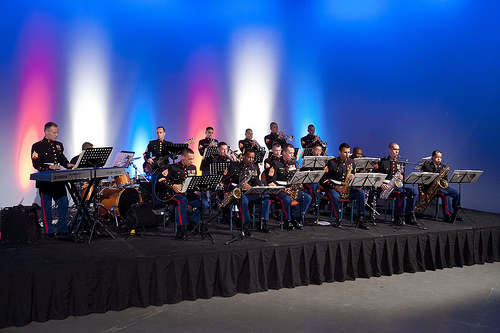




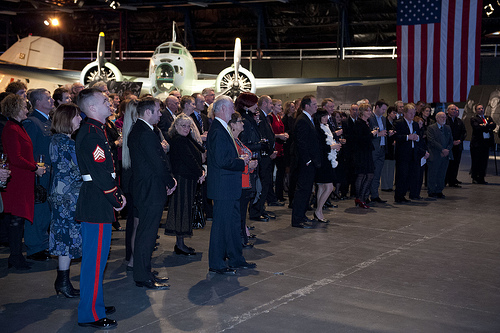
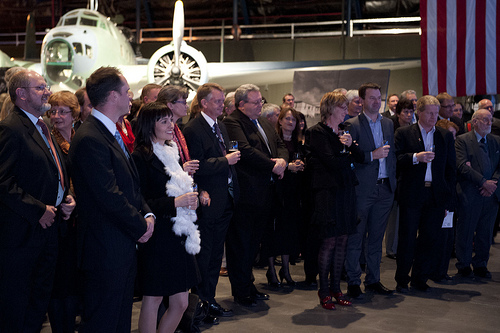

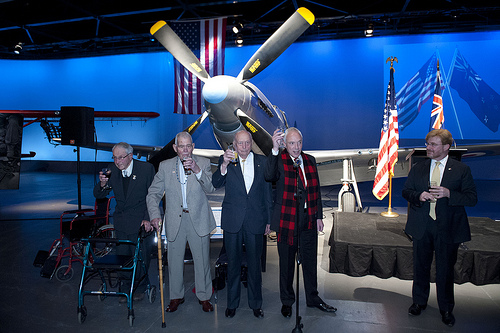

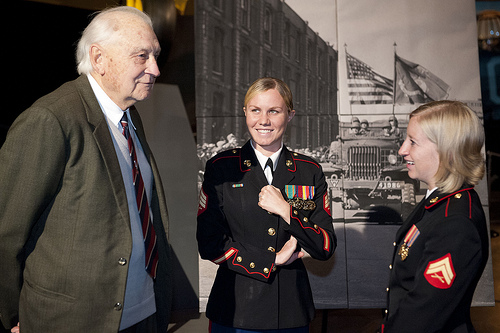



 View my Profile
View my Profile Connect with Wellington
Connect with Wellington Watch our Videos & Subscribe
Watch our Videos & Subscribe Watch our Videos on Vimeo
Watch our Videos on Vimeo Connect on GPlus
Connect on GPlus US Embassy NZ
US Embassy NZ


 Post Entries (RSS)
Post Entries (RSS)

